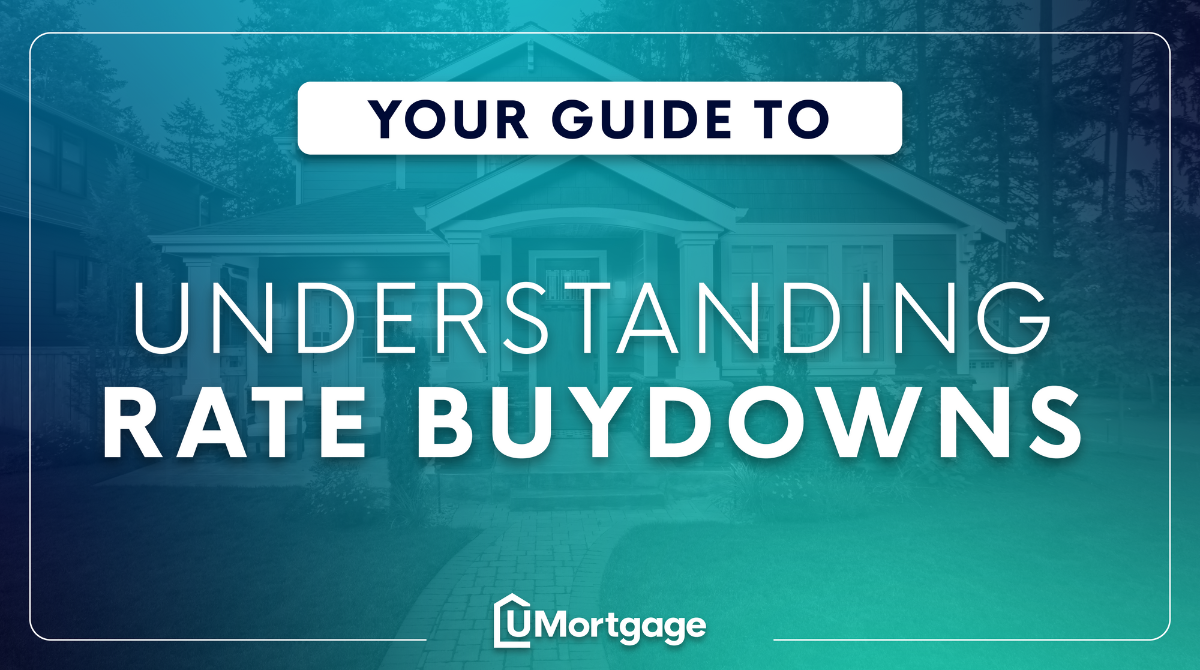

Tonya Walters
Meet Tonya!
Focusing on relationships, not transactions. 15 years+ mortgage experience offering a personalized mortgage experience.
Serving Homebuyers In:
- Texas
Mortgage Calculators
Monthly Payment
Find your monthly payment
What does a monthly mortgage payment look like for you? Get an estimate with some basic information.
Estimated Monthly Payment
The UMortgage mortgage calculators are for estimation purposes only. This is not a commitment to lend. For an exact quote based on your individual financial circumstances, please contact me.
Affordability
What is your budget?
Curious about how much you can afford to spend on a home? Use our calculator to get an estimate on your maximum budget.
Maximum Home Price
Maximum Monthly Payment
The UMortgage mortgage calculators are for estimation purposes only. This is not a commitment to lend. For an exact quote based on your individual financial circumstances, please contact me.
Refinance
Should you Refinance?
Refinancing might save money on your monthly mortgage payments, putting cash in your pocket. With some basic information from you, we can help decide if this is a good path for you.
Monthly Savings
Total Savings
The UMortgage mortgage calculators are for estimation purposes only. This is not a commitment to lend. For an exact quote based on your individual financial circumstances, please contact me.
Your Mortgage Questions, Answered!

Housing Market Update | Week of May 6th
Last week was a wild one for mortgage rates. Although the Federal Reserve announced that they would not be cutting the Federal Funds rate in their May meeting, they did announce that they are tapering their balance sheet reduction. This, combined with weak labor data sprinkled at the end of the week, saw mortgage rates drop at the end of the week. Last Week's Rate Recap: Rates Dropped Slightly Last week, the Federal Reserve held its May meeting. While they decided against cutting rates, Jerome Powell, Fed Chairman, held a dovish stance on the possibility of rate cuts in the future. Last week’s labor reports also showed a softening in the jobs market which caused rates to drop quickly at the end of the week. While it’s still unlikely that we see a rate cut in the Fed’s next meeting, a weakened labor market will be the key to seeing rates drop as the year goes on. This Week's Rate Forecast: Rates Should Stay Steady After the flurry of data and insight from last week’s jobs reports and the Federal Reserve meeting, we have a quieter week ahead without much data for the market to digest. Following a steep drop to the 10-year yield at the end of the week, market analysts will have a careful approach to instill some stability throughout the week. Overall, we should expect to see some steadiness throughout the week. If you want a more comprehensive overview of the market’s reaction to the Federal Reserve meeting and labor data last week, check out a replay of today’s Special-Edition Monday Market Update. Our two hosts offered plenty of insight behind these rate movements and some tactical advice to help you use these pieces of market data to better serve our homebuyers.

Understanding the Basics of Buyer Agency Agreements
As you're gearing up to embark on your homebuying journey, you'll probably want an experienced real estate professional to guide you through some of the intricacies and nuances that come with the process. When you find a trustworthy real estate agent to work with, they might ask you to sign a buyer agency agreement. This agreement outlines the terms of your collaboration as you navigate the ins and outs of securing a mortgage for your dream home. What is a Buyer Agency Agreement? Simply put, a buyer agency agreement is a contract between you and the real estate agent or agency that you choose to work with during your homebuying journey. It will outline the terms, conditions, and expectations a buyer can expect from their real estate agent. As a result of the recent NAR settlement, buyer agency agreements are required to be signed by buyers and real estate agents before the pair begin working together on the purchase of a home. These agreements aren't anything new, and they simply exist as a means to set clear expectations for both the agent and the buyer before the process beings. What are the Usual Terms of a Buyer Agency Agreement? These buyer agency agreements can vary based on the agent you choose to work with. Before signing this contract, it's important to understand exactly what's expected to ensure that you're getting exactly what you expect throughout the buying process. Below are the most common terms included: Agent's Responsibilities: The most common and often most important terms you'll find in your buyer agency agreement are the agent's responsibilities. Simply put, these responsibilities are the tasks you can expect your agent to perform for you until you close on your home. It can include scouting potential listings and open houses, writing and sending your offer letter, and completing your closing paperwork. Term Length: The homebuying process is complicated, and, because of a multitude of factors, can be drawn out for as long as a year. Your buyer agency agreement will typically outline the duration of time that you can expect to work with your agent. The term length is negotiable, so if you have a clear idea about your homebuying time frame, be upfront with your agent so it's agreed upon in the contract. Commission: Real estate agents earn their living on a commission when they close a deal. Most commonly, the buyer's and seller's agents receive a commission that ranges between 4-6% of the property's sale price. If the buyer's and seller's agents are the two brokers of this transaction, they will typically split the commission. Most commonly, agents receive this compensation through seller concessions or closing costs, but it's important to understand exactly how your agent expects to be compensated before you get started to avoid any unexpected costs. Exclusivity: As we mentioned above, your agent receives their compensation at the end of the deal. Because of this, it's often in their best interests to ensure that you will commit to working exclusively with that agent to protect themselves in the long run. There are buyer agency agreements that include non-exclusivity and exclusivity, so make sure to scan your agreement for these terms to avoid breaking the terms of your contract. Termination: It's not ideal, but if you or your agent partner are either unsatisfied with the partnership or you face an unexpected roadblock in your homebuying journey, there will typically be a termination contingency baked into the contract. Why Should You Care About Your Buyer Agency Agreement? Buying a home is one of the biggest commitments you can make. It's crucial to work with experienced real estate and mortgage professionals who can guide you through the process and look out for your best interests. Having set agreements in place and a thorough understanding of every party's expectations is the first step towards a smooth and stress-free homebuying experience. When you begin working with an agent, it's important to be straightforward and upfront with your desires, expectations, and timeline for your homebuying journey. While putting pen to paper can feel like a big moment, a buyer agency agreement is a commonplace contract that protects both you and your agent and lays the foundation for a successful homebuying experience. By formalizing your relationship with a mortgage professional, you gain reassurance knowing you have someone in your corner who's advocating for your best interests. If you're searching for a trustworthy and experienced real estate agent to help you achieve your dreams of homeownership, feel free to reach out! I have plenty of experienced partners who possess the necessary market knowledge, neighborhood savvy, and value to help you find a house that feels like home sweet home.

Understanding the Basics of Mortgage Rate Buydowns
Plenty of homeowners find themselves waiting for mortgage rates to drop before hitting the housing market. While there’s much more that goes into homeownership preparedness than a low mortgage rate, there are multiple ways to lower your rate without having to rely on market movements. Between temporary and permanent rate buydowns, you can lower your monthly mortgage payment by lowering your interest rate either temporarily or permanently. Although they sound similar, there are plenty of differences between the two types of rate buydowns and several factors that might make one better for specific homebuyers than another. Below, we’ll outline the benefits and major differences between rate buydowns to help you understand what might be best for your unique circumstances. Permanent Rate Buydowns Permanent rate buydowns are a strategy where homebuyers pay additional upfront fees (commonly referred to as points) to their lender in exchange for a reduced interest rate over the entire term of the loan. Unlike temporary rate buydowns, which only offer reduced rates for a set period, typically at the beginning of the loan, permanent buydowns provide lasting savings by prepaying a portion of the interest upfront. This investment offers stability and predictability, as borrowers can budget for lower monthly payments over the entire loan term, particularly advantageous in a rising interest rate environment. Determining whether a permanent mortgage rate buydown is right for you depends on various factors including your financial situation, short and long-term future plans, and market conditions. Homebuyers prioritizing long-term savings and stability, especially if they plan to stay in their home for an extended period, may find permanent buydowns appealing. However, it's essential to weigh the upfront cost against potential long-term savings. Temporary Rate Buydowns Temporary rate buydowns allow homebuyers to secure a reduced interest rate for a specified period at the beginning of the loan term. Unlike permanent rate buydowns, temporary buydowns provide short-term relief by lowering initial monthly payments. While temporary rate buydowns provide immediate relief with reduced initial payments, they return to the original rate after the specified period. Because of this, the interest rate reduction can be particularly beneficial for borrowers with budget constraints, those expecting their income to increase in the future, or those who plan to refinance after a short period. Temporary rate buydowns can be paid by buyers, but there are certain situations where homebuyers can use seller concessions or specific offers from builders to earn reduced mortgage payments for the first year or first couple years of their loan. Rate buydowns are a great option for homebuyers looking to reduce their monthly mortgage payment for either a temporary or permanent period. While the two sound similar, they have different costs associated and aren’t always the best option for every buyer. If you have any questions about what kind of rate buydown might be right for you, feel free to reach out for a free consultation!
Serving Homebuyers In:
- Texas